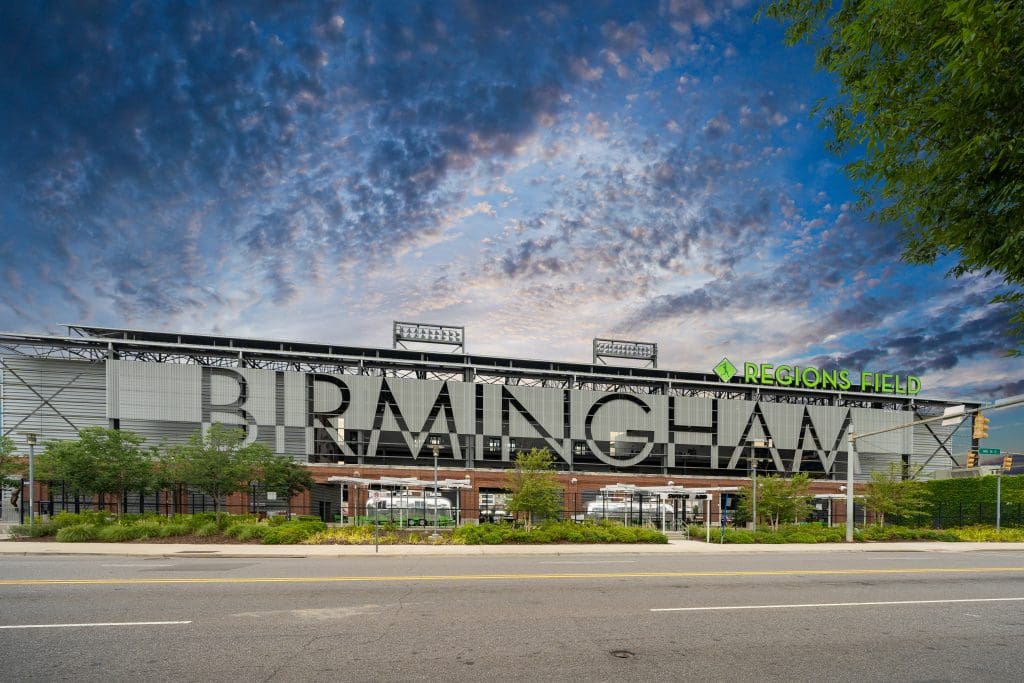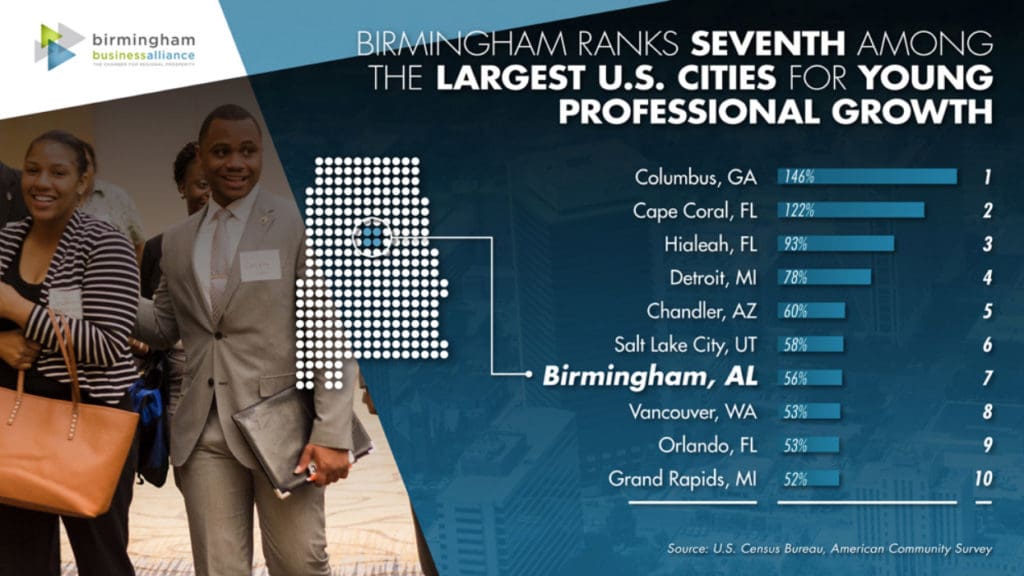As a real estate investor, you know that the market you choose can have a big impact on your returns. You also know to look for a market with high yields that has strong economic growth, with high employment and a low cost of living. What you may not know is that Birmingham, AL can deliver all that, and so much more!
The Magic City has been undergoing a cultural and economic renaissance over the past few years, making it both a great place to live and a great place to invest. With businesses investing billions, the Birmingham economy is booming and employment continues to rise. Our cultural cache is keeping up with industry’s brisk clip, as Birmingham’s culinary scene continues to draw acclaim. In addition to its world-class dining options and locally brewed craft beers, Birmingham boasts a lively theater scene, affordable real estate, and a surprisingly low cost of living.
If you thought Birmingham was just another Southern town, think again. Below, we’ll explore eight major reasons the Magic City is one of the nation’s most promising markets for real estate investment.

1. Businesses Bet on Birmingham
Birmingham is making a name for itself across the world, thanks for groups like Innovate Alabama. This group provides essential resources and funding opportunities that help businesses establish and grow by way of grants, loans, and investment opportunities that better allow them to scale.
In 2022 alone, Jefferson County reported 8 new projects that created $143 million in new capital investments, and nearly 1,000 new jobs throughout. 12 existing projects that were expansion produced around $30 million in investments. These developments underscore Birmingham’s growing reputation as a hub for business and innovation, attracting companies from various sectors looking to expand and thrive in a supportive and dynamic environment.
In June 2024, AI software company, CModel Data Inc., announced a relocation of its headquarters from San Francisco to Birmingham, which will allow the business to operate more efficiently. Coca-Cola Bottling Company United also announced big plans this year to invest around $330 million in a new campus.
2. A Diversified Economy
Any savvy real estate investor knows that not all markets are created equal. Economic growth is crucial, but so is the source of that growth. A diversified economy with strong representation across industries provides the best safety net in times of economic turmoil. Think of it like a well-rounded stock portfolio – you don’t want your whole investment hinging on the success or failure of single security. In Birmingham, diversification is built-in due to strong employment across a wide range of industries – from medicine and education to manufacturing and aerospace.
The healthcare system is a cornerstone of Birmingham’s robust economy, acting as a major driver of economic growth and stability. With world-class medical facilities like the University of Alabama at Birmingham and a thriving biomedical research sector, the healthcare industry not only provides thousands of jobs but also attracts significant investment, fostering a dynamic and resilient local economy. By September 2022, UAB alone created a $6.4 billion economic impact through spend on goods and supplies.
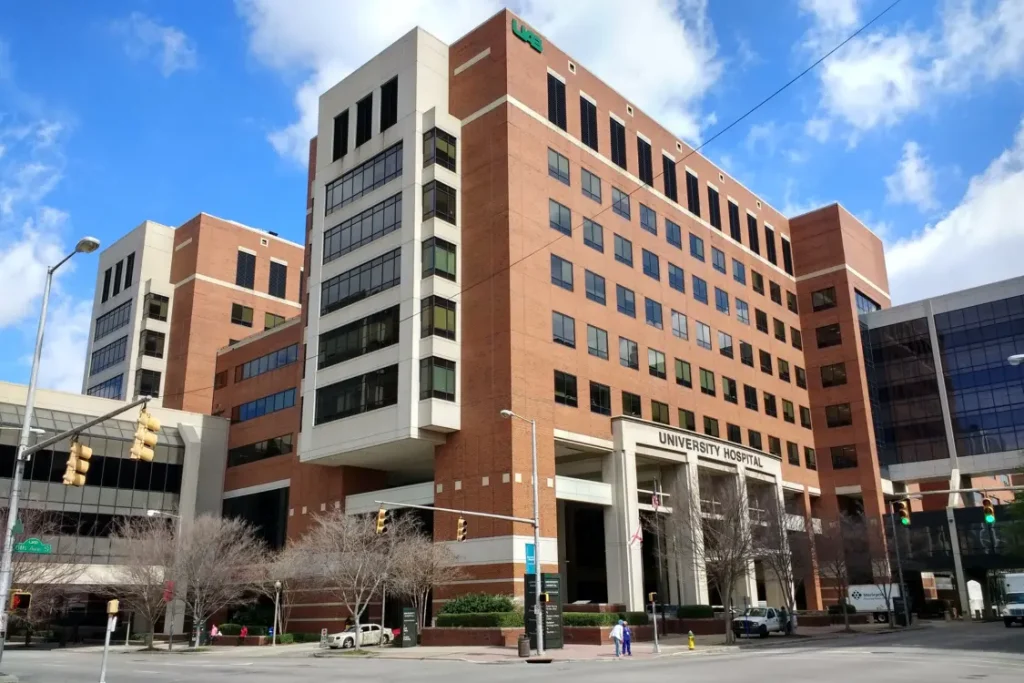
3. Future-Focused
From programs designed to increase tech literacy among younger generations, to receiving a federal Tech Hub designation, the city’s leadership are working hard to earn the title of ‘Southern Silicon Valley’. With lower overheads, a more affordable cost of living, and plenty of room for new ideas and bold moves, Birmingham is becoming a big destination among young innovators turned-off by the members-only vibe of the Bay Area.
What’s more, Birmingham is host to Sloss Tech, a technology and leadership conference aimed at connected top technology influencers with the city’s emerging innovation scene. In 2023, the Biden Administration designated Birmingham as one of 31 Tech Hubs across the country that will help spur regional innovation and job creation.
Since 2014, the University of Alabama at Birmingham has participated in a Smart Cities Masters program, which encourages students to pursue projects that benefit the community as a whole. With massive incubators like the Innovation Depot and a track record of producing successful startups like Shipt and Landing, Birmingham’s already making a name for itself on the national stage.
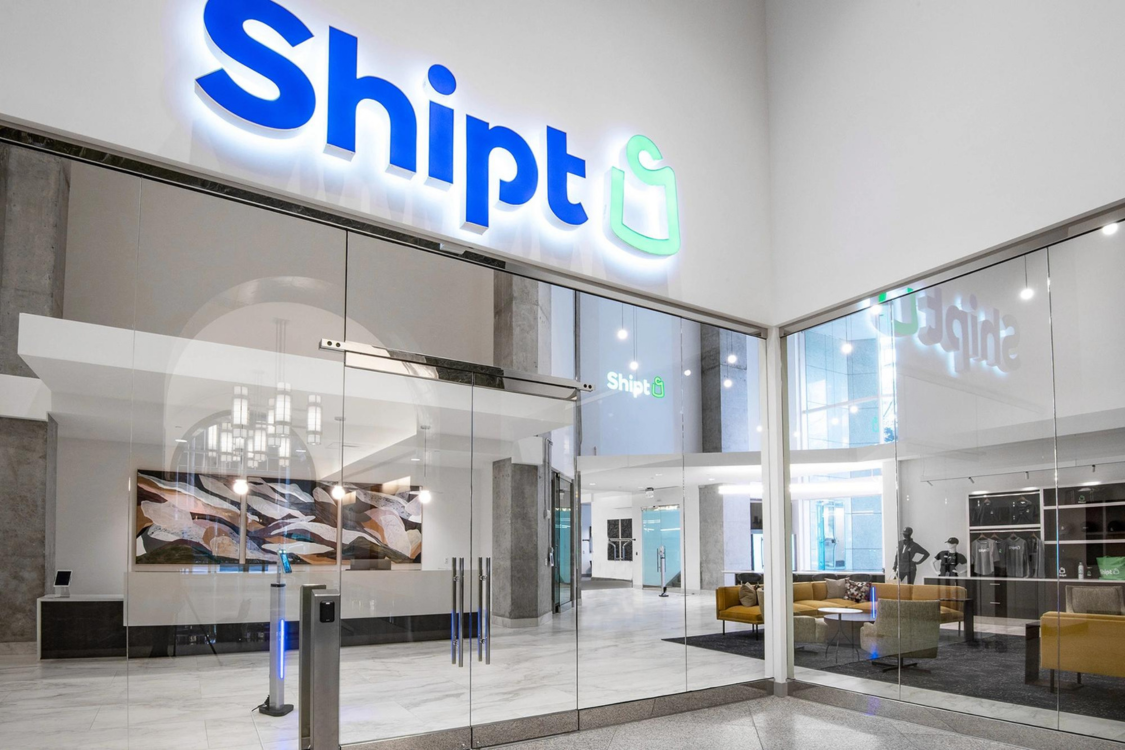
4. Steady, Consistent Growth
Of course, experienced investors know there’s more to a successful real estate investment than flashy headlines. All those big projects and new investments need to translate into real jobs and real dollars to make Birmingham a worthwhile investment. Luckily, Birmingham continues to deliver when it comes to important metrics like unemployment and jobs growth.
Looking over the data for 2018, Birmingham’s unemployment rate has continued its downward trajectory. Even accounting for seasonal upticks, employment in Birmingham went up over the course of the year. The unemployment rate for 2023 comes in at 2.4%, a solid 0.7% lower than the national average for the same period. This rate highlights that progress made in years past wasn’t a fluke, but a sign of a consistently growing economy and strengthening workforce.
In addition, Birmingham’s continuous economic growth means it consistently beats out the majority of other metro areas in GDP – ranking in the top 13.5% of all 383 metropolitan areas surveyed in 2017. Jobs creation in the Magic City is also strong, with Birmingham adding more than 2,800 jobs in November 2023. That trend is expected to continue due to the numerous development projects coming up in 2024.
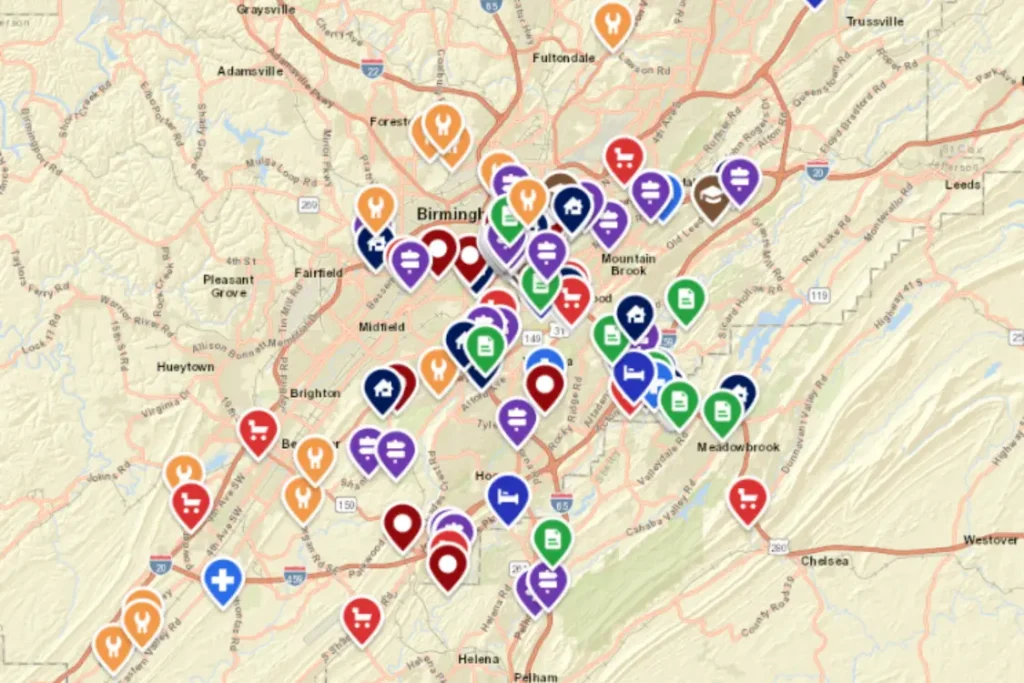
5. A City Renewed
While Birmingham may have been considered an overlooked real estate gem in the past, that time is quickly coming to an end. Things are happening in Birmingham and people are taking note. This is due, in part, to the fact that Birmingham has broad appeal – it truly has something for everyone.
Author Bruce Schoenfeld profiled Birmingham for National Geographic Traveler saying, “I’ve found a modern city that has retained its pace and charm, one with many of the accoutrements and attitudes of the New South but without the shiny facelessness common to too many cities around the region.”
That goal, of keeping pace with the modern world without losing its unique charm, is reflected in the revitalization of the downtown area. Through financing and historic tax incentives, Birmingham has worked with local, national, and international industry to bring the Magic back to Birmingham, and the impact has been huge.
From the world-class culinary scene (including two James Beard-honored chefs) to the diverse job market, Birmingham isn’t just another Southern town. Ambitious construction and expansion projects have brought new business, strengthened existing industries, and returned historic buildings to former glory.
Despite Birmingham’s complex past and Southern stereotypes, it has become a modern city that maintains it’s old-world charms. The revamped downtown has a number of unique and interesting destinations that attract residents and visitors alike, including the Jones Valley Teaching Farm, the gorgeous Alabama Theater, a bustling downtown restaurant and hotel district, and the latest City Walk Skatepark.
All these things considered, it’s no wonder that Forbes once listed Birmingham in the top 15 U.S. Cities’ Emerging Downtowns. The cultural renaissance, millennial interest, stable and growing real estate market, and undeniable economic growth all add up to make Birmingham an investment market unlike any other.

6. It’s Still A Steal
While the real estate market in Birmingham shows home values increasing over time, property prices are still remarkably affordable. In fact, housing prices in Birmingham beat out those in other major real estate markets by a wide margin. The average cost of living in Birmingham is 8% lower than the national average and the median cost of housing in the Magic City is a full 233% lower than when compared to the national average. Birmingham also handily beats out other popular markets around the country, like Philadelphia, Kansas City, and Dallas. When compared to the national average housing cost, Birmingham undercuts these markets by 39-192%! Though more affordable than Nashville, Dallas’ housing prices are a full 191% more expensive than in Birmingham.
This trend doesn’t just apply to housing. Alabama has some of the lowest property tax rates in the nation, with Jefferson County’s effective property tax rate coming in at a measly 0.65%. The average property owner in Alabama pays just $674 per year in property taxes, 75% less than the national average.
What’s more, Birmingham’s real estate market is historically very stable, without the wild ups and downs of larger markets like New York City and Los Angeles.
Just like investing in the stock market, a good passive investment is built on a solid foundation of consistent upward growth, not volatile highs and lows. Even accounting for the nationwide recession in 2009, Birmingham has produced an average annual appreciation rate of more than 2% since 2000. Birmingham’s consistently bullish real estate market has exactly the mix of stability and gradual appreciation that buy-and-hold investors are looking for.
7. A Foothold for the Future
There’s no denying that the Millennial generation is having a huge impact on markets across the country. A generation that is moving and shaking all over the nation cannot be ignored, and prominent investing and finance publications have spent the past few years emphasizing the importance of investing in markets that are attractive to Millennials. With 71% of Millennials and Gen Zs being interested in starting businesses, this generation’s got momentum you don’t want to miss out on.
Birmingham is an obvious choice for any investor looking to ride this wave. In fact, Birmingham was ranked one of the best cities for young professionals in America – young people with degrees are flocking to the Magic City.
It’s no wonder, given the fantastic university, the ample jobs growth, and the low cost of living. The thriving social scene, revitalized downtown, and affordable homes with steady appreciation don’t hurt either.
More recently, Niche.com ranked a number of Birmingham’s suburbs among the best places in Alabama for Millennials and placed Jefferson County in the top 9% of best counties in the nation for Millennials.
8. A Rising Star
Every investor dreams of finding that one great investment that no one else knows about yet – getting in before rising popularity pushes prices up. While Birmingham is still one of the most affordable cash flow markets in the country, this hidden gem is a secret no longer – and demand is soaring.
In addition to some of the most affordable housing prices in the country, rock-bottom property tax rates, and impressive economic growth, Birmingham is a town for renters. In fact, the most recent data shows that more than 53% of Birmingham residents rent, making this a great market for long-term rental investments.
Birmingham has numbers that meet or beat those of many ‘hot’ real estate markets, but without the cut-throat competition for returns – for now. In 2024, Norada.com listed Birmingham as the one of the best cities to invest in real estate, giving investors the highest return on investment properties. With press like that, however, Birmingham’s ‘outlier’ status has quickly become a thing of the past as investors rush to capitalize on all this market has to offer.
